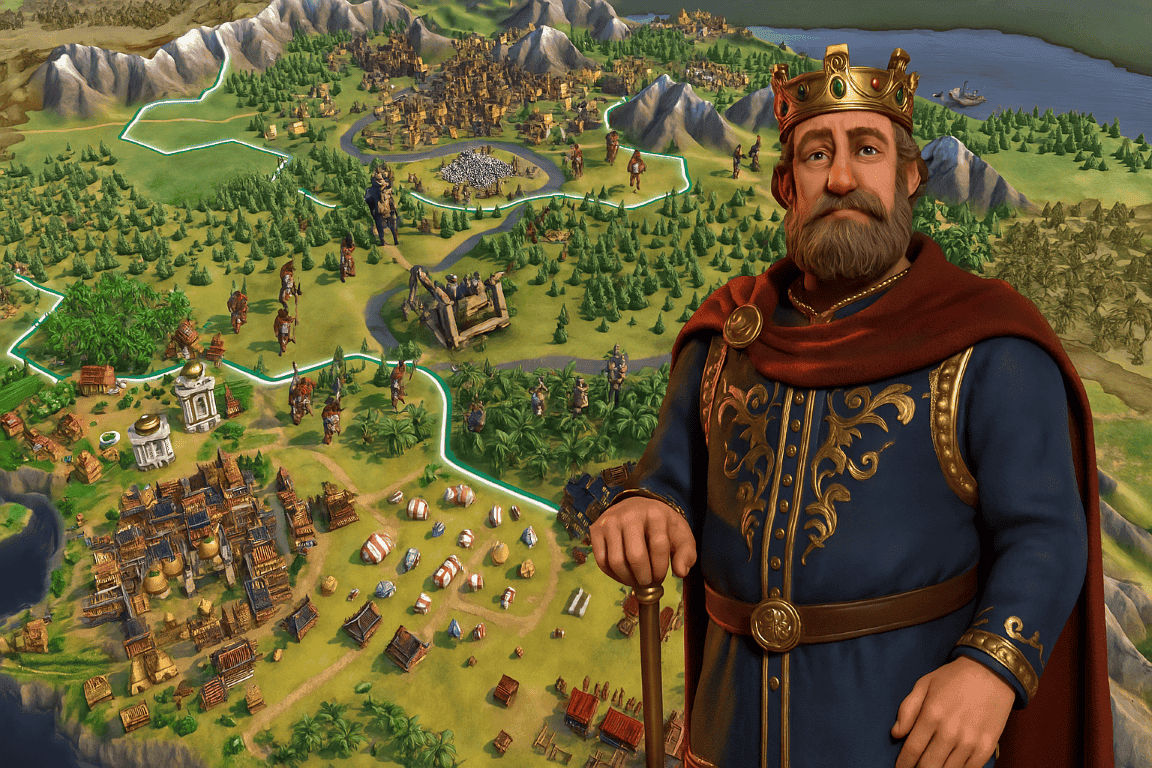You know the feeling. It’s 2 AM, the world is dark and quiet, but on your screen, an empire is buzzing. You’re not just clicking buttons; you’re deep in thought, plotting your next move. Will you declare a war that will reshape continents? Or will you push for a scientific discovery that changes everything? This is the world of Sid Meier’s Civilization, and if you’re like me, you’ve realized you’re learning more than just how to win a game. You’re learning how to win, period.
I wanted to share some of the biggest strategic lessons this game has taught me, principles that have genuinely changed how I approach challenges, both on and off the screen. This isn’t just about build orders or tech trees; it’s about the core of what it means to be a strategist.
1. Always Play the Long Game
The biggest mistake I used to make was just reacting to whatever was happening on the screen. A barbarian camp here, a new resource there. My empire was a mess, good at nothing and vulnerable to anyone with a clear plan.
The game forces you to learn a critical lesson: start with the end in mind. From the moment you found your first city, you should have a victory condition in your sights. It’s the only way to make your decisions count.
- Here’s how I think about it: If I’m playing as Egypt, I know their strength is building Wonders. So, my long-term goal is a Cultural victory. That doesn’t mean I ignore my army, but I build it to protect my Wonder-building efforts. My economy is there to fund the construction. Every decision serves that one ultimate goal. It brings a powerful clarity to every choice you make.
2. The Art of the Pivot
Of course, no plan survives contact with the enemy (or a surprise volcano). A rigid plan is a fragile one. The real world, just like a game of Civ, will always throw you a curveball. The true masters of strategy know when to adapt.
I’ve had to learn this the hard way. Sticking to a failing plan out of stubbornness is a guaranteed way to lose.
- A classic example: I was cruising toward a Science victory as Korea. My tech lead was huge. Suddenly, my warmongering neighbor, who saw my progress as a threat, launched a massive surprise attack. My old self would have tried to race to the finish line, hoping my labs would outpace his armies. The smarter me? I pivoted. Hard. I immediately switched all my production to military units. I used my tech advantage to build a more advanced army, crushed the invasion, and then reassessed. The war had so weakened him that a Domination victory was suddenly on the table. Being able to pivot isn’t weakness; it’s the core of smart strategy.
3. Your Empire is an Engine
You can’t achieve anything without the fuel to get there. In Civ, that means managing your resources—not just gold and production, but also time and population. Everything is a trade-off. A farm instead of a mine? That choice echoes for dozens of turns.
I’ve learned to see my empire as a complex engine I’m constantly trying to optimize for my specific goal.
- For a Domination game, that engine is all about production. I’ll use internal trade routes to pump food and production into my military-focused cities, turning them into factories for my army.
- For a Science game, the engine is fueled by population. I need tall cities to generate the raw science to get ahead.
- For a Cultural game, it’s a delicate balance of culture, faith, and gold to churn out Great Works and National Parks.
This mindset forces you to be deliberate. When I get a new builder, I’m not just improving random tiles. If I’ve just discovered iron and I’m planning an attack, that builder is making a beeline for that iron mine. Every resource has a purpose.

4. The War You Don’t See
The most satisfying wins are the ones you achieve without firing a single shot. Diplomacy, espionage, and culture are your invisible weapons. They can cripple a rival from the inside out.
Learning to navigate the diplomatic landscape is key. You have to understand who you’re dealing with.
- Know your neighbors: If I spawn next to Montezuma, I know I need to build walls and an army, fast. If my neighbor is Cleopatra, building up my own army might actually make her like me more.
- Weaponize your influence: I’ve won games by simply having such a strong culture that my opponent’s cities literally flipped to my side out of loyalty pressure. No invasion needed.
- Master the shadows: A well-timed spy operation can be devastating. Stealing a key technology, sabotaging a spaceport, or inciting rebels can completely derail an opponent’s strategy, giving you the opening you need.
5. Seizing the Decisive Moment
A perfect plan is useless if you execute it at the wrong time. The game has a rhythm, a tempo of power spikes and vulnerabilities. Recognizing your window of opportunity—and your enemy’s—is what separates the good from the great.
- Think about this: When I play as Alexander the Great, I know my power spike is in the Classical era with his unique units. I spend the early game building up that specific army. The moment I see my neighbor has been focused on their economy and has a weak military, that’s my window. I declare a surprise war and use my superior force to cripple them before they can react. If I had waited, they might have caught up technologically, and my advantage would have vanished. It’s about recognizing that moment of maximum leverage and having the guts to act.
The Real Victory
When that victory screen finally pops up, you’ve done more than just win. You’ve had a masterclass in strategic thinking. These lessons—planning for the long haul, adapting to change, managing resources, and acting at the decisive moment—are universal.
So next time you’re deep in a game, remember that you’re not just playing. You’re training your mind. And that’s a skill that pays off long after you’ve shut down the PC.


